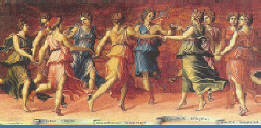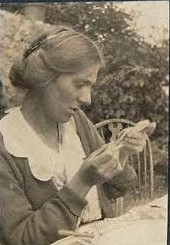|
|
Fredegond was born to a family where her father was a legal historian, and her mother sister
in law to Ralph Vaughan Williams who set some of her works to music. She attended Newnham
College from 1910 to 1913 where she studied English and during that period also spent time
in London with the Vaughan Williams. In 1915 she married the economist, Gerald Shove, who
as cousin to Virginia Woolf, brought contact to the Bloomsbury Group.
She spent the years 1916-1917 in the Bailiff's Cottage at Garsington Manor where her husband
served on the poultry farm as a conscientious objector. Juliette Huxley, described her life
there as Spartan but their employer described her as "an enchanting creature, very
sensitive, delicate and highly strung, with a fantastic imagination".
She was, however, subject to occasional bouts of mental anxiety.
Her first poetry collection, Dreams and Journeys, was published in 1918 some poems in which,
together with a number of later poems, were included in several post war anthologies. Her
work contained references to religious themes that were a precursor to her joining the
Catholic Church in 1922. Her second collection, Daybreak, appeared in that year to less
acclaim but she, nonetheless, experienced a decade of popularity and prosperity. In 1931,
she published a study of Christina Rossetti but she continued to write poetry
copiously throughout her life, publishing selections from time to time.
She was widowed in 1947 and died in 1949. Her sister, Ermengard, as literary executor,
published a memoir in 1952 (or 1954) and later commented that Fredegond in her early teens
had confided to her that her experiences were of 'scenes, colours and sounds always, rather
than events or actions'.
Fredegond was well regarded by the critics although some, with the license of ink, expressed
aspersions on her works when compared with some contemporaries.
|

